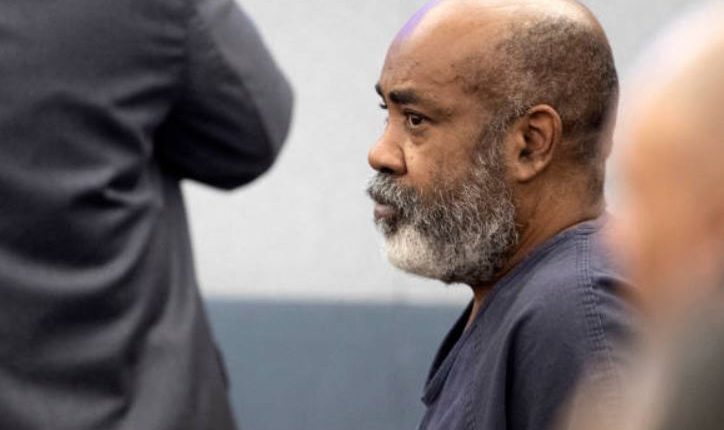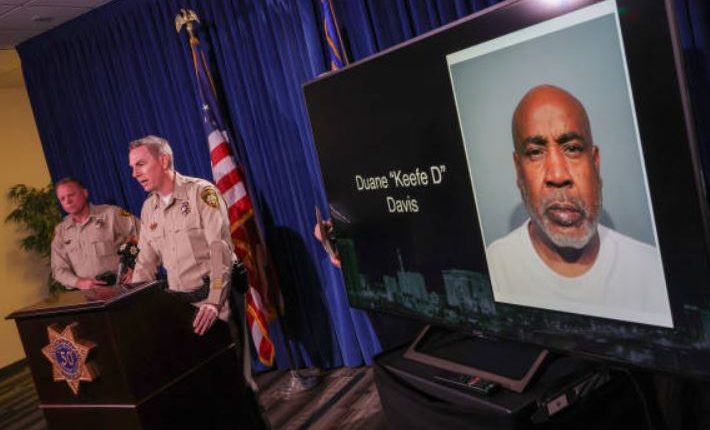Tupac Shakur Murder Case: Suspect Granted House Arrest with $750,000 Bail
Duane ‘Keffe D’ Davis, a former Crips gang member charged with orchestrating the notorious 1996 murder of rapper Tupac Shakur, has been granted house arrest by a Nevada judge on the condition that he posts a $750,000 bail.
The unsolved murder case has lingered for nearly three decades, and Davis, aged 60, maintains his innocence to the first-degree murder charge.
$750,000 Bail and Questions of Delayed Justice
The Nevada judge set the bail at $750,000, allowing Davis to serve house arrest with electronic monitoring while awaiting trial in Las Vegas.
His defense team had initially requested a bail of no more than $100,000, but the judge settled on the higher amount.
Davis has been held in the Clark County Detention Center since his arrest in September and will remain there until the bail is posted.
While Davis’s trial is scheduled for June, his defense team is urging a postponement due to the challenges of collecting evidence after almost three decades.
The defense attorneys argue that the delay between the alleged crime and the trial necessitates additional time for proper investigation.
The judge did not set a new trial date but scheduled a status check for 20 February.
During the hearing, Davis’s attorney, Robert Arroyo, asserted that his client posed no danger to the community and questioned why authorities waited 15 years to make the arrest if the evidence against him was overwhelming.
Arroyo highlighted Davis’s declining health after a recent battle with cancer, emphasizing that he was not a flight risk.
Tupac Shakur Murder Case

Prosecutors countered, claiming that Davis was a significant danger to the community, especially to potential witnesses.
They argued against bail or advocated for a high bail, citing jailhouse phone calls where a list of witnesses was allegedly given to Davis’s family members.
Prosecutors expressed concerns about a possible “green light” order mentioned in one call, interpreted as an authorization to kill.
Despite Davis not being accused of pulling the trigger, prosecutors maintain that he is responsible for Tupac Shakur’s murder.
The legal proceedings continue to unfold, with the possibility of a source hearing to verify the legality of the bail funds.
The high-profile case has reignited discussions surrounding the mystery of Tupac Shakur’s tragic death, raising questions about the credibility of evidence and the complexities of justice in cases with significant time lapses.

